 PHOTOS
PHOTOS20 Brave Stars Who Battle Mental Illness: From Ben Affleck to Roseanne Barr and More
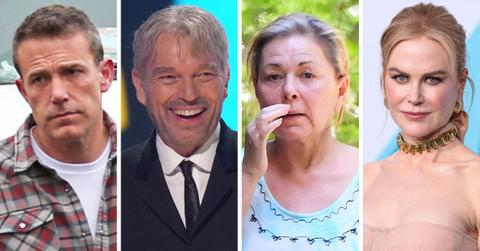
July 18 2024, Published 8:00 a.m. ET
Ben Affleck – Depression
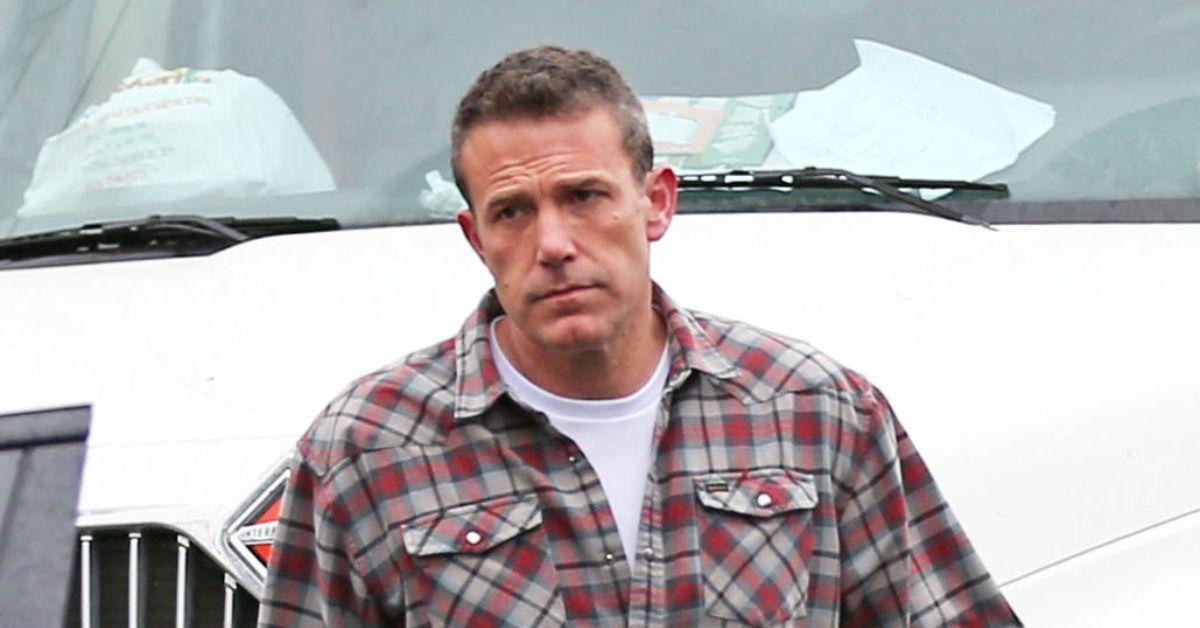
The 51-year-old Oscar winner said he’s battled depression since his 20s and has been taking medication for it since he was 26 years old.
“I get depressed,” Ben Affleck said. “I take antidepressants. They’re very helpful for me. I’ve taken them since I was 26 years old, various different kinds. I’ve switched and tried this and tried that.”
The star has also spoken candidly about his alcohol addiction.
“I started to drink every day. I’d come home from work and drink until I passed out on the couch,” he revealed. He’s spent multiple stints in rehab, but said, “I don’t have any room for failure of that kind at this point ... I have to be the man I want to be.”
Jane Pauley – Bipolar Disorder
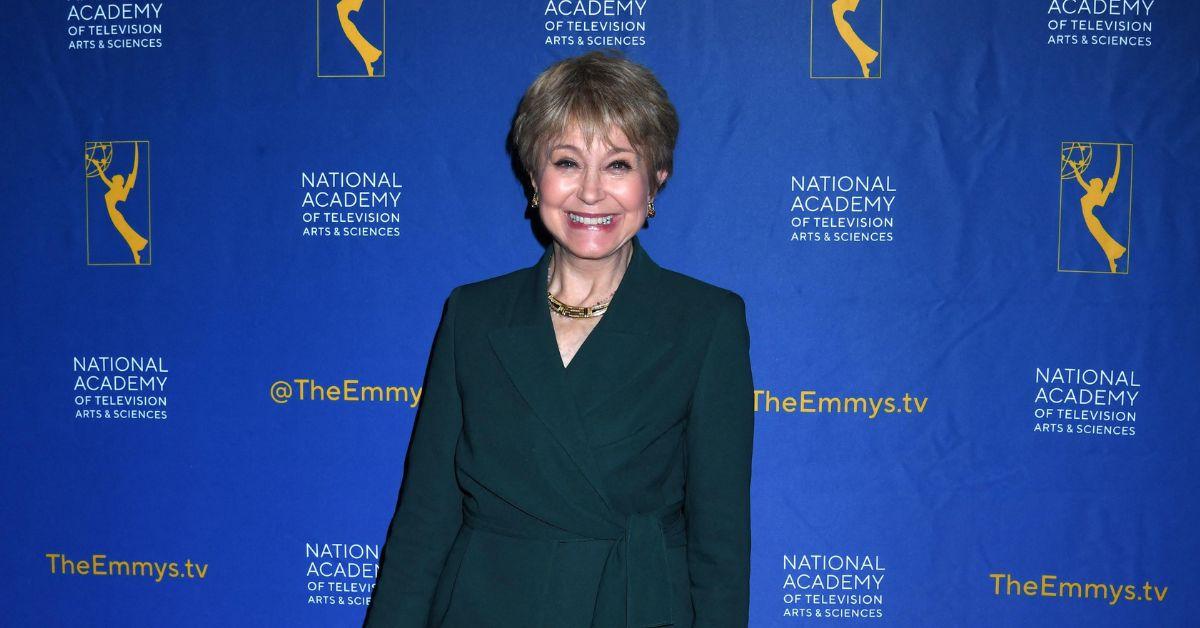
The legendary TV anchor and journalist has been in the spotlight since she replaced Barbara Walters on NBC’s Today show in 1976, and then co-anchored Dateline NBC for a decade. But it wasn’t until the release of her autobiography in 2004 that Jane Pauley revealed her struggles with bipolar disorder.
“The diagnosis is bad enough, but the shame to hide it is even worse,” said Jane, now 73. But she refused to do that.
“The only way to redeem a horrible situation is to share it,” she said. “If we’re lucky, the next generation won’t drag around that personal stigma. They are also going to grow up with a wider array of medications that address whatever causes this malady of ours.”
Ryan Reynolds – Anxiety
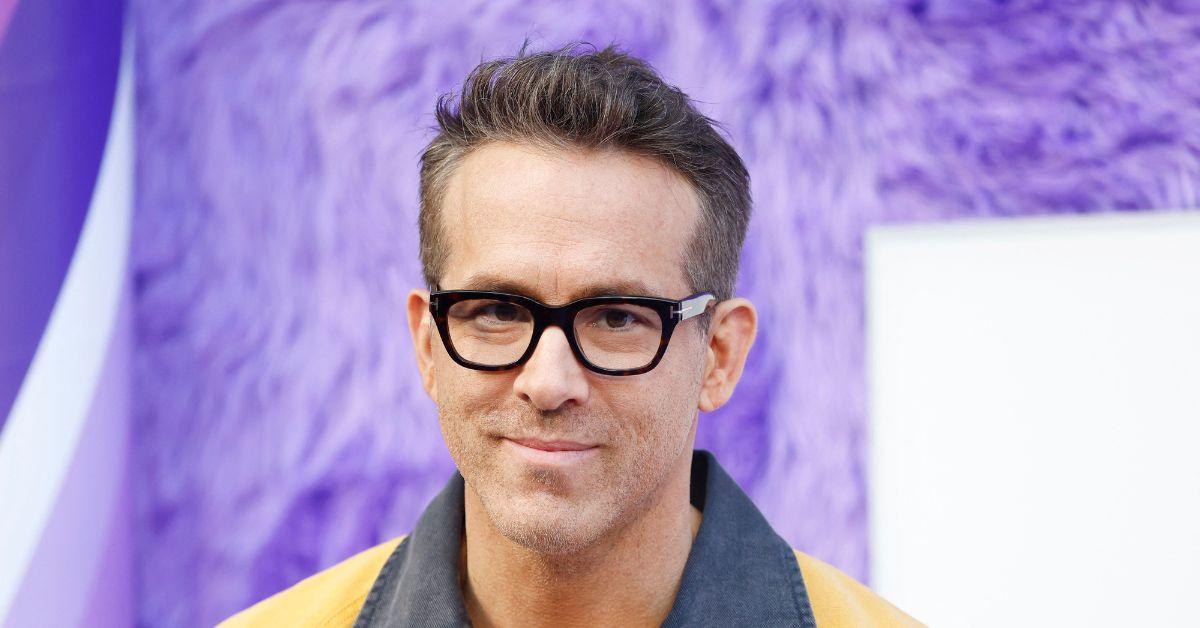
Although the 47-year-old Deadpool star seems like one of the most confident — and hilarious — people in the world, the actor said he’s dealt with intense, crippling anxiety since he was a kid.
“I’ve had anxiety my whole life really,” said Ryan Reynolds. “When I would go out on, like Letterman, back in the day, I was nervous. But I remember I’d be standing backstage before the curtain would open, and I would think to myself, ‘I’m gonna die. I’m literally gonna die here. I’m gonna be a symphony of vomit ... something horrible’s gonna happen.’”
He said he was speaking openly to “destigmatize things and create a conversation around mental health ... when you talk about it, it kind of sets other people free.”
Richard Dreyfuss – Bipolar Disorder
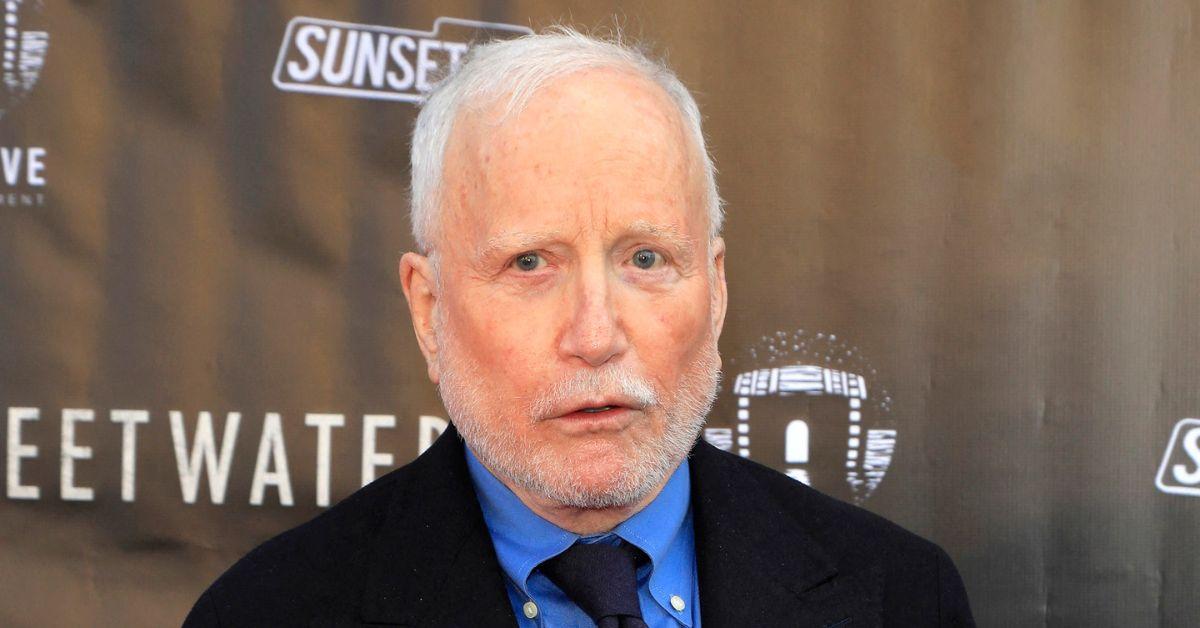
The Jaws and Close Encounters of the Third Kind actor said living with bipolar disorder shouldn’t be a bad thing. He has referred to his manic state as an “incandescent ecstasy of creation,” and did not regret having the illness at all.
Richard Dreyfuss, 76, said he didn’t understand what was behind the intense emotions that filled much of his life.
“I didn’t know it was a manic state,” he said. “I just thought I was really happy, and everything that was bad, I turned to good.”
When he was diagnosed, he said, “It took away all of my guilt because I found out it wasn’t my behavior — it was something I was born with. I didn’t feel shame or guilt. It’s like being ashamed that you’re 5-foot-6 or something. It’s just part of me.”
Jean-Claude Van Damme – Bipolar Disorder
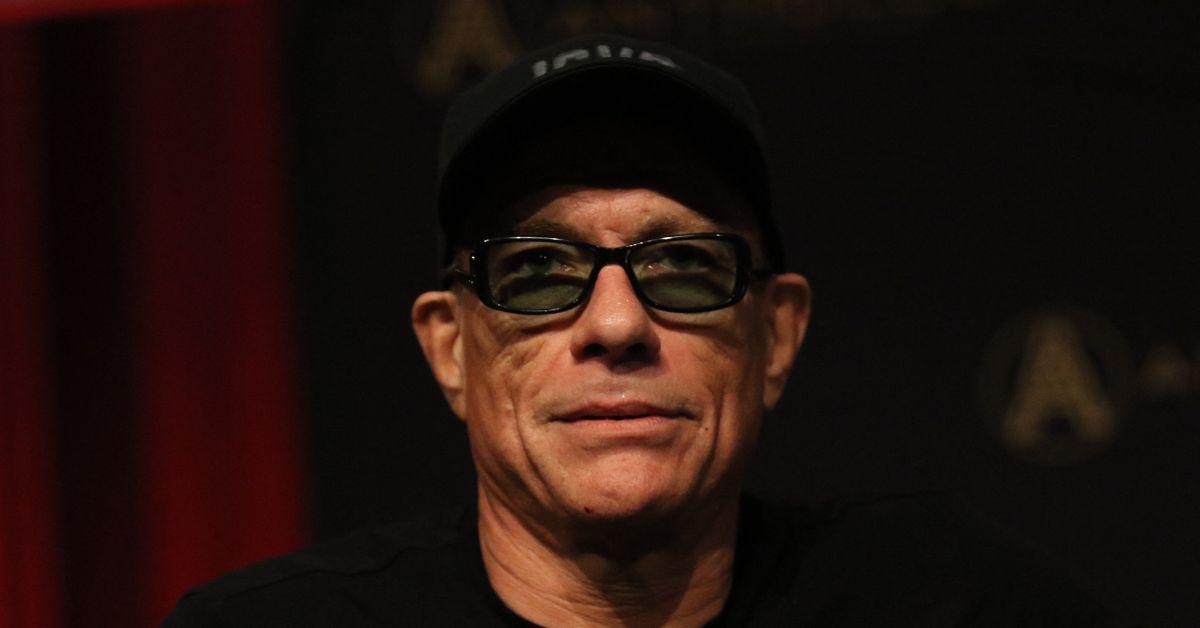
The Belgian kickboxer turned actor experienced rapid cycling bipolar disorder. While his movie career took off with hits like Universal Soldier and No Retreat, No Surrender, his personal life was unraveling. Too much partying and a string of failed relationships led to his crash-and-burn story. He checked himself into a clinic for substance abuse, but in 1998 he got to the root of his problem, which made him go through episodes of mania and depression.
Doctors put Van Damme on a medication called sodium valproate, and he was amazed at how well he felt. “You just have to take a little salt, and since I’m doing that it’s like BOOM!! In one week, I felt it kick in,” said the “muscles from Brussels,” who is now 63 and filming Kill ‘Em All 2. “All the Commotion around me, all the water around me, moving left and right around me became like a lake.”
Mariah Carey – Bipolar Disorder
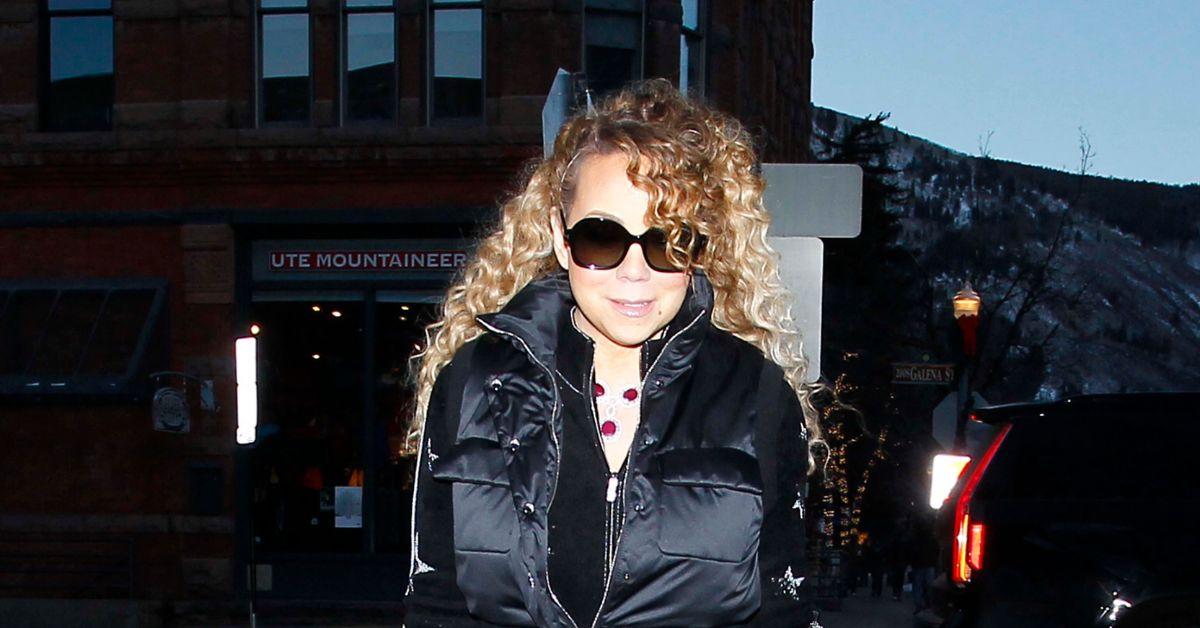
The 54-year-old songbird Mariah Carey said she was first diagnosed with bipolar disorder in 2001 but didn’t go public with her diagnosis until 2018, saying, “Until recently I lived in denial and isolation and in constant fear someone would expose me. It was too heavy a burden to carry, and I simply couldn’t do that anymore. I sought and received treatment, put positive people around me, and got back to doing what I love — writing songs and making music."
Diana Ross – Depression and Bipolar Disorder
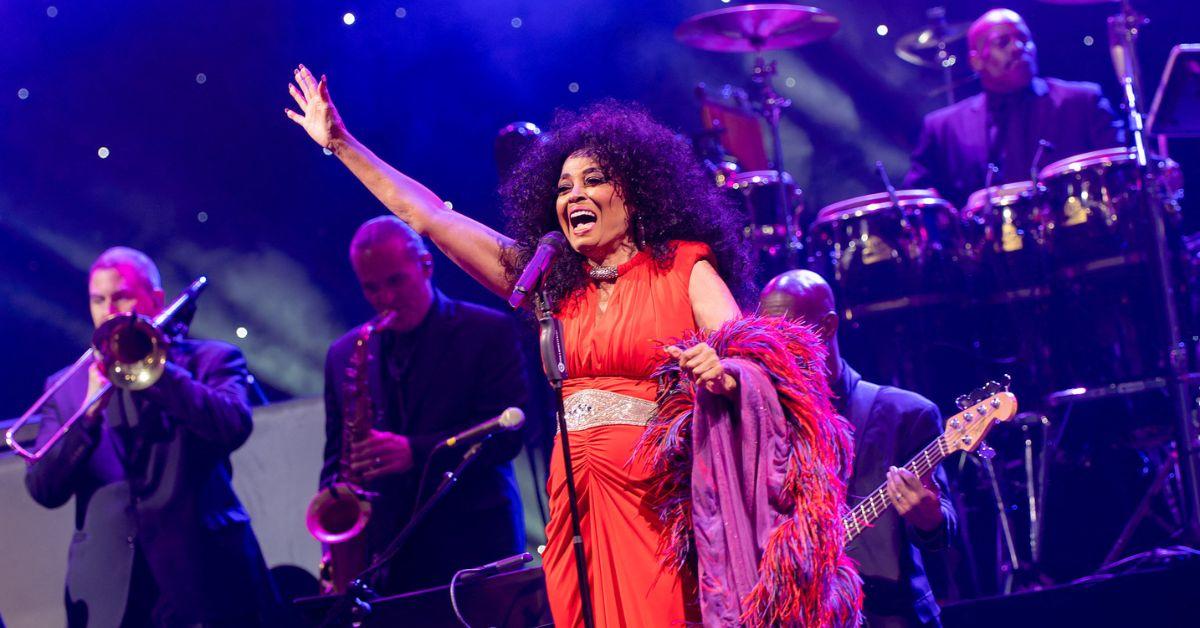
Diana Ross, 79, teetered on the verge of nervous collapse over her faltering career and failed marriage to shipping tycoon Arne Naess when she secretly checked into a psychiatric ward at Century City Hospital in Los Angeles in December 2001.
Following her release, she entered rehab at Promises in Malibu to tackle addictions to alcohol and prescription painkillers after her five children begged her to seek help. She was later diagnosed with depression and bipolar disorder.
Nicole Kidman – Depression and Panic Attacks
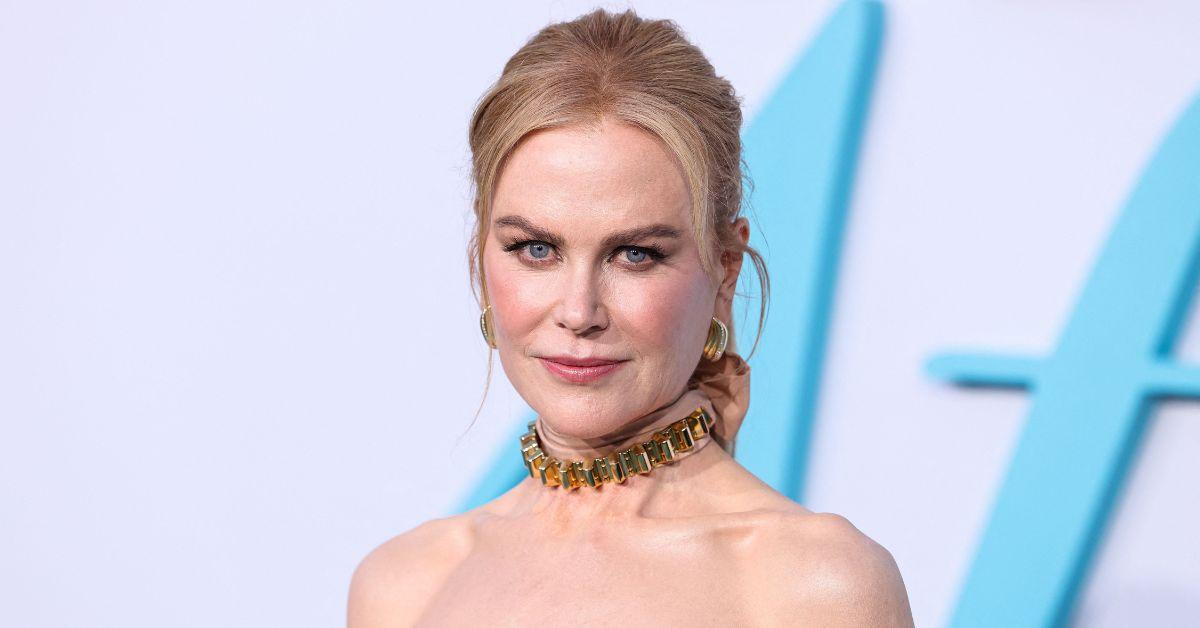
Nicole Kidman has been married to Keith Urban since 2006.
The 56-year-old Australian actress said she was suffering from depression and felt like she was “not in her own body” while playing the role of writer Virginia Woolf in the drama The Hours.
Nicole Kidman portrayed the tormented author, who struggled with her own mental health, while coping with her divorce from Tom Cruise.
“Depression affects you at different times,” she said. She added she has suffered from panic attacks — especially during red carpet events.
Darrell Hammond – Schizophrenia and Bipolar Disorder
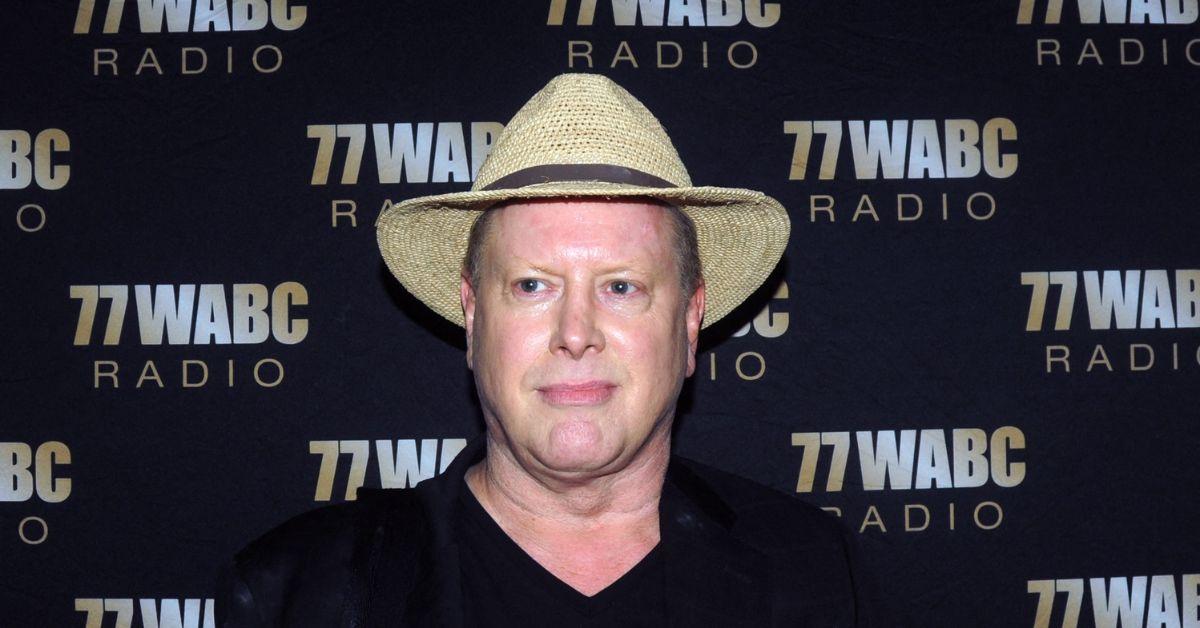
The 68-year-old comedian and actor — who’s appeared on Saturday Night Live more than any other cast member besides Kenan Thompson, with Bill Clinton as his most frequent impression — was severely abused by his mother, contributing to his lifelong struggles with depression and substance abuse.
In 2011, Darrell Hammond revealed his anxiety from abuse led to cutting, several hospitalizations due to psychiatric issues, and diagnoses including bipolar disorder, schizophrenia and borderline personality disorder. Hammond said he was medicated throughout his time on SNL and that he cut himself backstage and was once taken from the studio to a psychiatric ward.
Winona Ryder – Clinical Depression and Anxiety
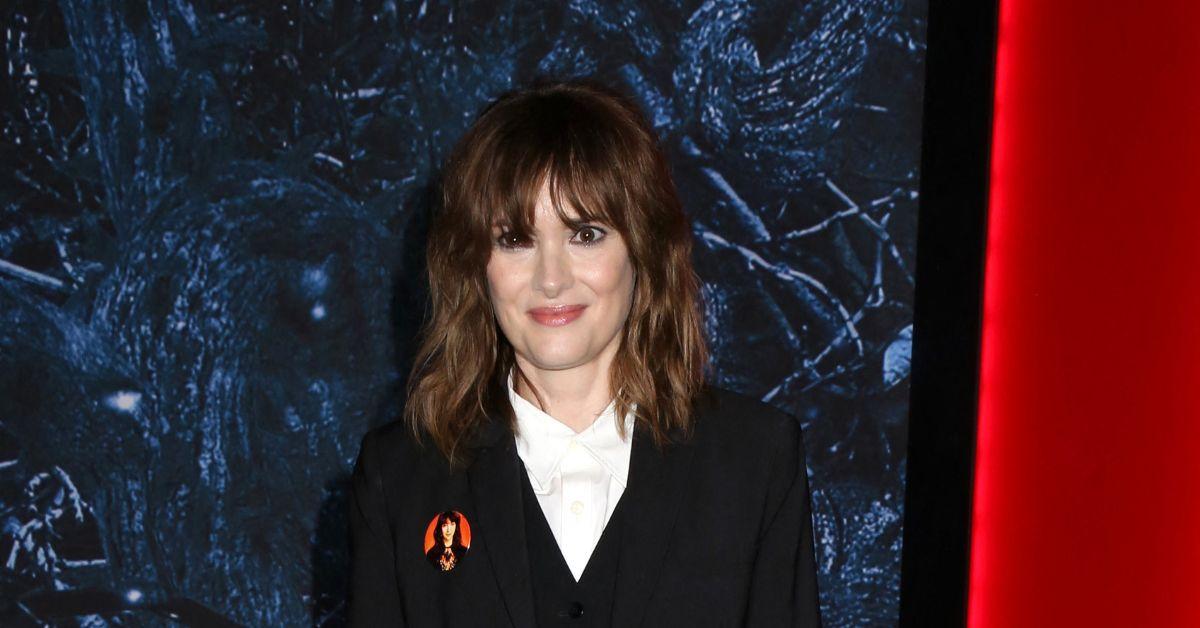
In 1990, the Stranger Things mom, 52, dropped out of a role and checked herself into a mental hospital to deal with crippling anxiety.
Winona Ryder later admitted: “I was scared I might do something stupid ... They put me in the psychiatric ward ... It was very scary, very real.”
When she got the role in Girl, Interrupted in 1999, she said, “I was terrified to play a character who was full of fear and anxiety knowing that I have been full of fear and anxiety, and it’s not something that’s just past tense for me. It’s something you battle with your whole life.”
- Gwyneth Paltrow Hilariously Calls Out Nikki Glaser for 'Wanting to F---' Her Ex Ben Affleck
- Ben Affleck Feels 'Really Lucky' to Have 'Wonderful' Ex-Wife Jennifer Garner to Co-Parent His 3 Kids With: 'We Work Together Well'
- Ben Affleck Addresses Jennifer Lopez Divorce, Insists His Affinity for Privacy Wasn't What Caused a 'Major Fracture' in Their Marriage
Want OK! each day? Sign up here!
Rene Russo – Bipolar Disorder
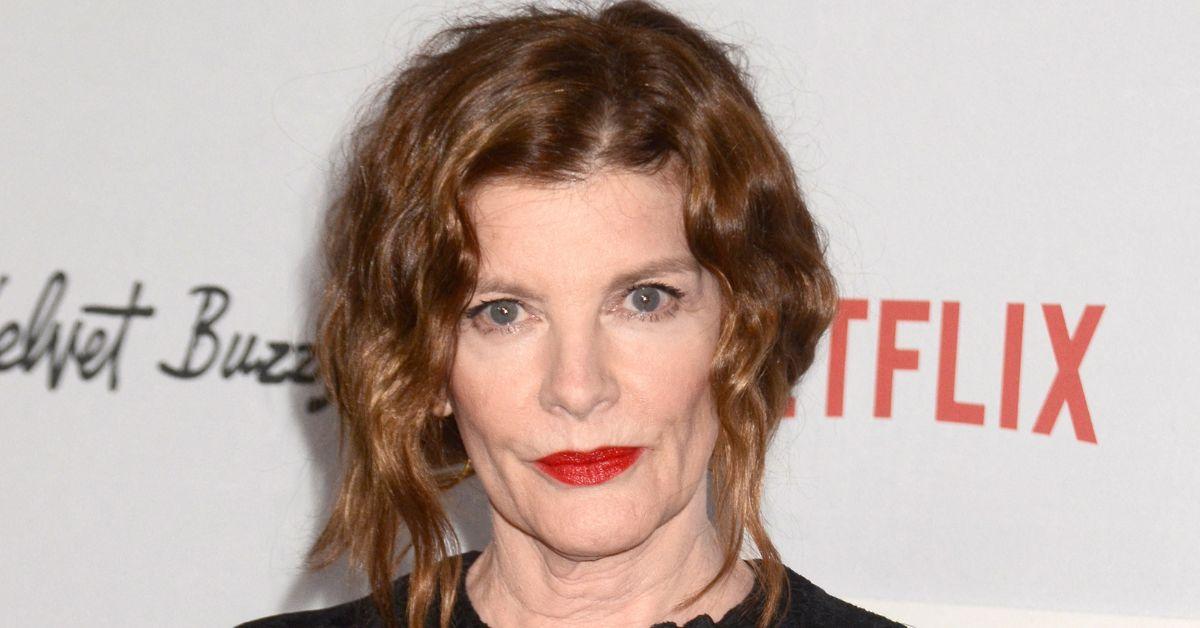
The Lethal Weapon actress began her career as a fashion model in the 1970s, and after an emotionally turbulent time, she visited her doctor and received a diagnosis. Shortly after that, she started taking medication.
“I literally crashed, hit a wall and couldn’t get out of bed,” 69-year-old Rene Russo recalled, noting she’d been “stop and go” all her life. “I thought it was depression but if you have bipolar and take antidepressants, it speeds you up more.”
She said to “all the people that are having trouble and maybe feel bad about taking medication, it’s OK. You will make it through. It’s not easy, but you will make it through.”
Catherine Zeta-Jones – Bipolar Disorder
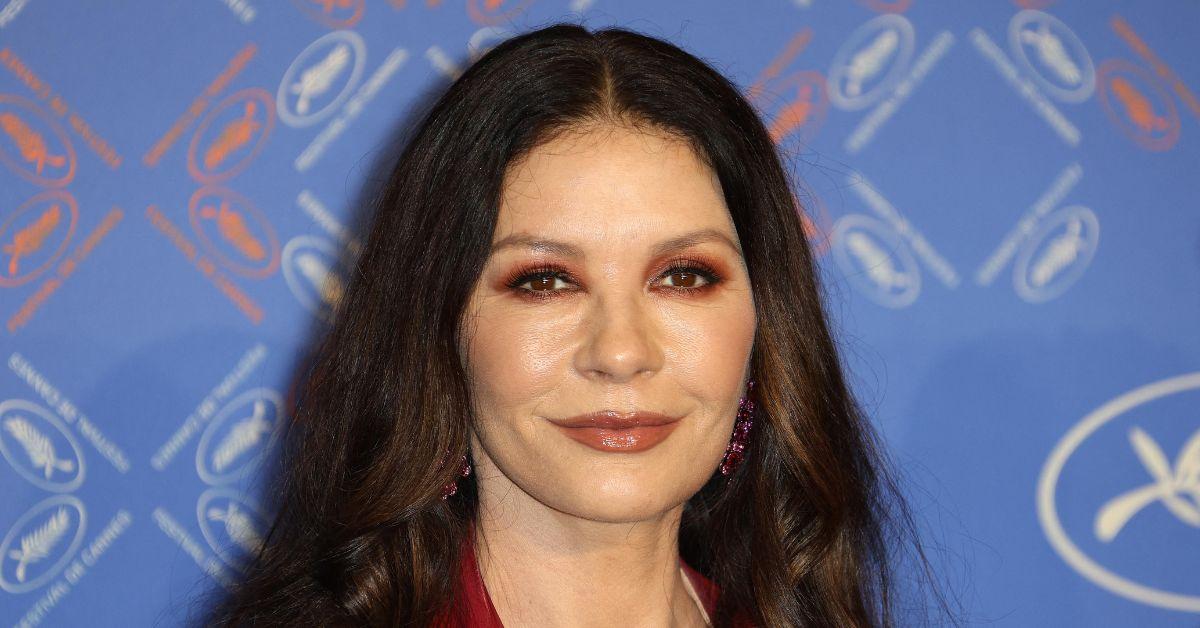
The 54-year-old brunette beauty suffers from bipolar II disorder, a form of mood-swinging disorder that has more extended down periods.
The Zorro actress and wife of Hollywood heavyweight Michael Douglas has been outspoken about destigmatizing the disorder, hoping to help others seek the treatment they need.
“It’s something I’ve been dealing with for a long time,” said Catherine Zeta-Jones, who checked herself into a mental health facility to help cope with her struggles. “If my revelation of having bipolar II helps one person, then it’s worth it.”
Linda Hamilton – Bipolar Disorder
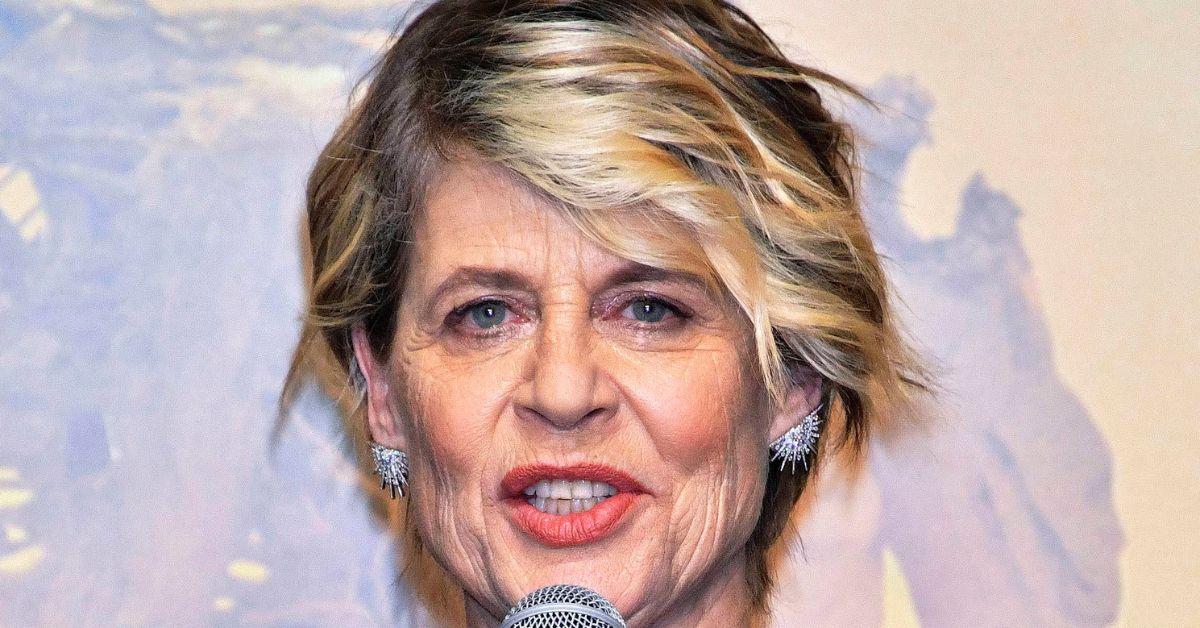
Linda Hamilton, who shot to fame with her role as Sarah Connor in 1984’s The Terminator, said she struggled with bipolar disorder for 20 “lost years.” She dealt with it by self-medicating with drugs and alcohol. But she finally sought — and got — the help she needed.
Now 67, Hamilton said, “Somebody needs to come out and make this okay for people to talk about and get help and take advantage of the resources.”
Kristen Bell – Anxiety and Depression
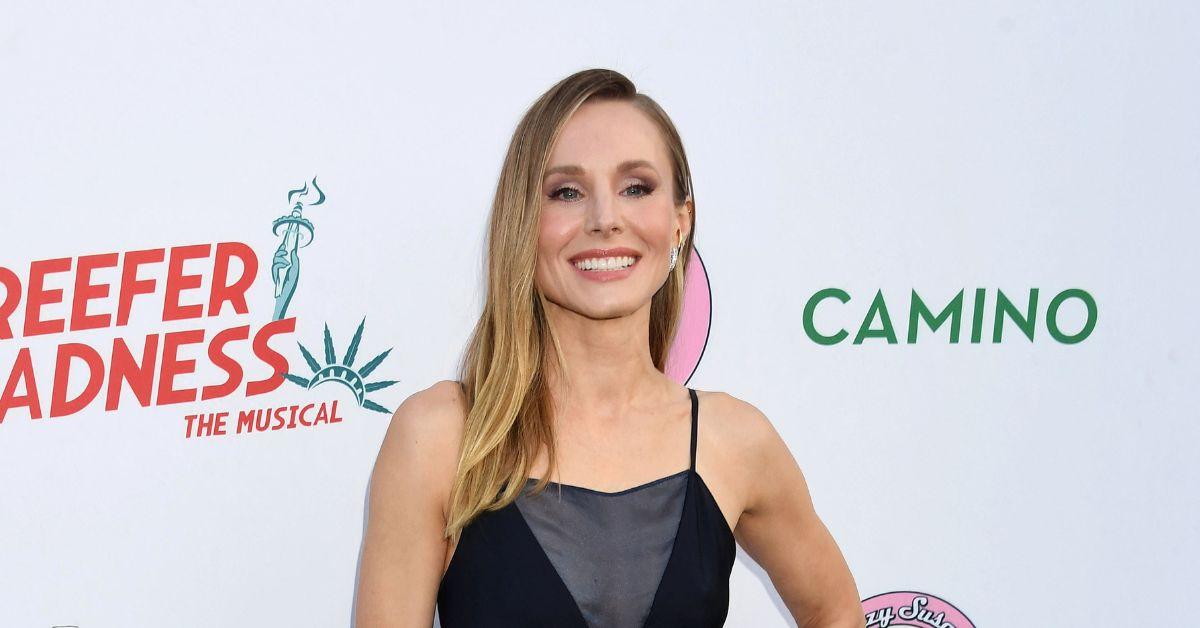
“Prior to sharing what my struggles were with anxiety and depression, I recognized that my picture publicly was this sort of bubbly actress that probably didn’t have any dark days,” said the 43-year-old Frozen star.
Kristen Bell said she takes medication for her problems: “I really, really feel like when I got over the stigma of mental health in my life, and I stopped hiding the fact that I take medicine for it or that I go to therapy, or that I’ve had bouts of depression or anxiety — I just felt more empowered.”
David Beckham – Obsessive-Compulsive Disorder
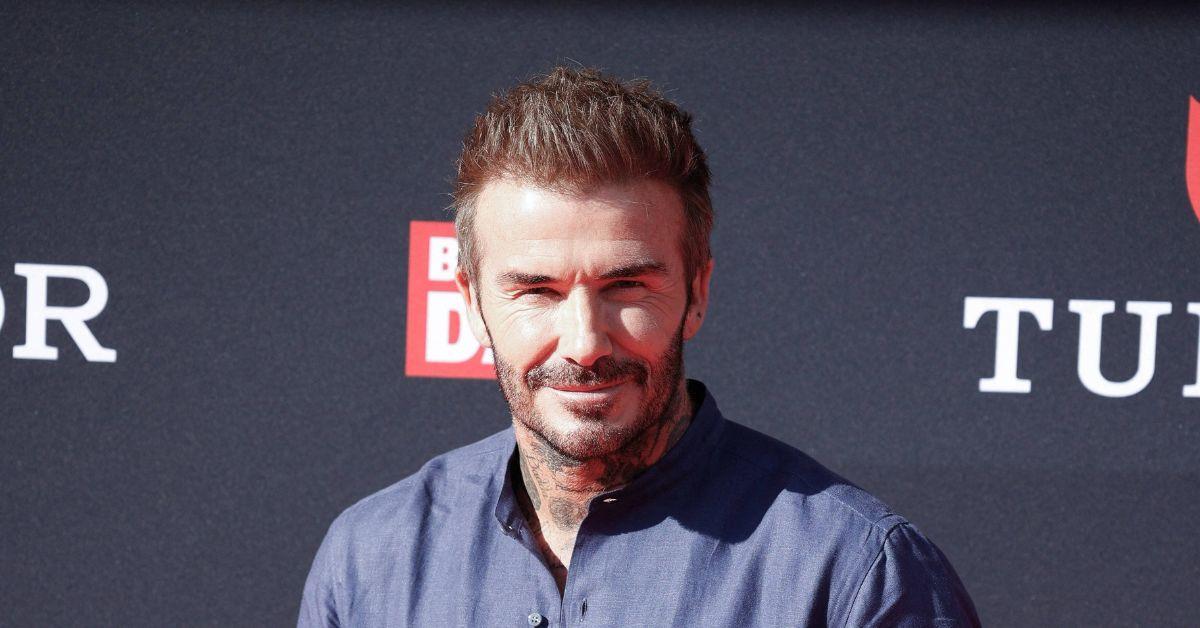
Soccer superstar David Beckham has opened up about living with OCD and its impact on his life. He reports struggling with specific cleaning rituals and having to arrange and organize items in a specific way.
He has stated, “I’ve got this obsessive-compulsive disorder where I have to have everything in a straight line or everything has to be in pairs.”
Billy Bob Thornton – Obsessive-Compulsive Disorder
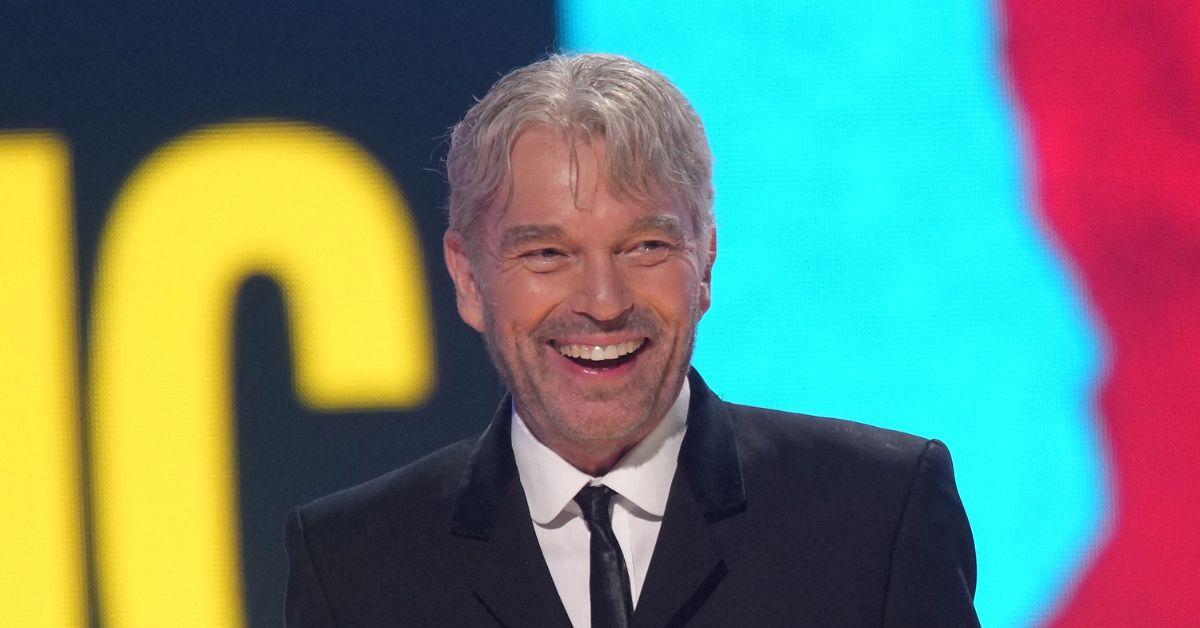
Billy Bob Thornton shared that his OCD symptoms developed from childhood trauma from being abused by his father. OCD is a pattern of having intrusive thoughts, known as obsessions and completing repetitive behaviors.
Thornton, 68, said his symptoms focus on mathematics and numbers. He described, “Certain numbers represent certain people. And I can’t use that number in certain circumstances.”
Leonardo DiCaprio – Obsessive-Compulsive Disorder
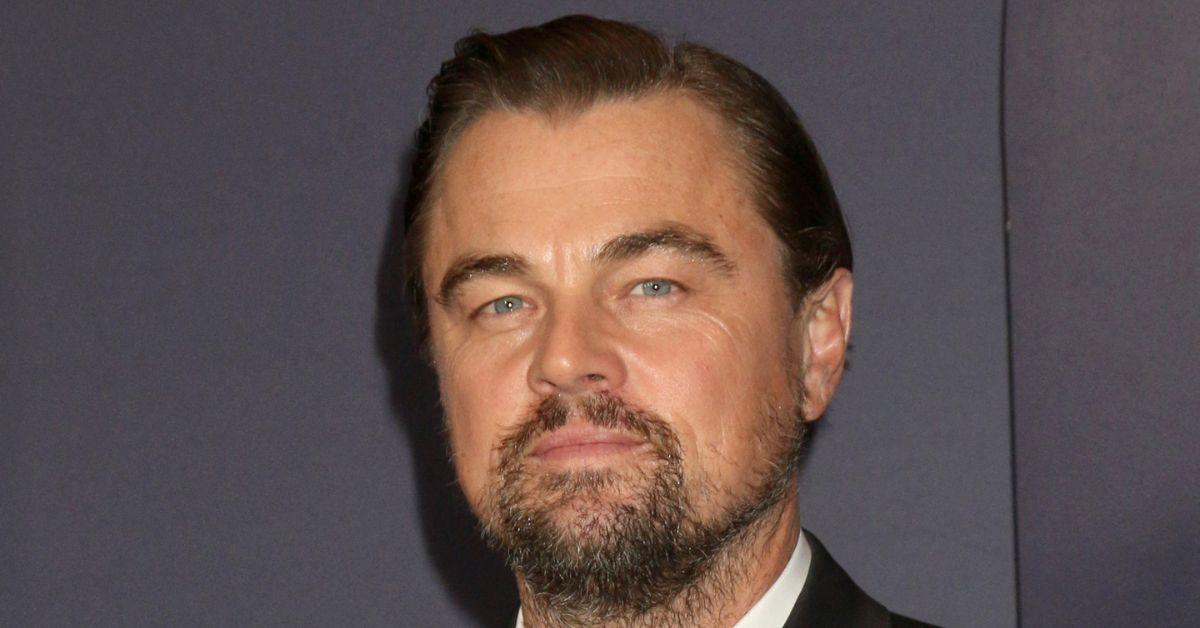
The 49-year-old Titanic star has been honest about his struggles with OCD throughout his life. He shared that he initially struggled with OCD at age 11 and it worsened when he was 18.
Leonardo DiCaprio has disclosed having repeating compulsions, such as walking on cracks in the sidewalk a specific way, walking in and out of doorways, and knocking on wood before entering a room a certain number of times.
DiCaprio reveals that his symptoms worsened while portraying another famous individual with OCD, Howard Hughes, in the movie The Aviator.
He said, “I was trying to be the character. It became real bothersome, even after the filming.”
Fortunately, once he was able to return to treating his OCD, he was able to manage his symptoms.
Roseanne Barr – Multiple Personality/Dissociative Identity Disorder
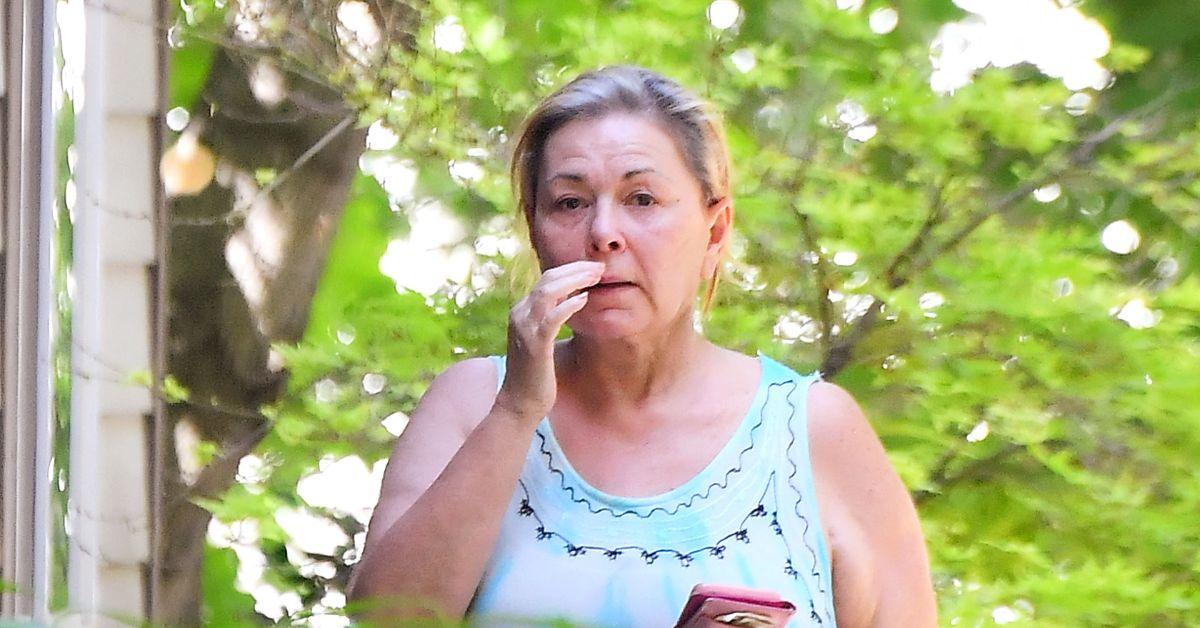
The comedian said her mental illness stems from childhood when her mother hired their abusive German neighbor into their home in Salt Lake City.
“He used to torture me every day,” Roseanne Barr recalled. “I’d come home and tell my mother, ‘He’s hitting me, he locked me in his garage’ ... And my mother would go, ‘You’re making this up.’ That’s how you get multiple personality disorder.”
The names of her different identities: Baby, Cindy, Susan, Nobody, Somebody, Joey, Heather, Roger, Kevin, Evangelina, Vangie, Martha, Mother, Piggy, F-----, Bambi, Rosey, Roseanne, ONE.
At 16, her parents admitted her into a psychiatric facility in Utah for eight months because they thought she was “out of control.”
Said Barr, now 71, “I was tranquilized. I was in a stupor.”
Mel Gibson – Bipolar Disorder
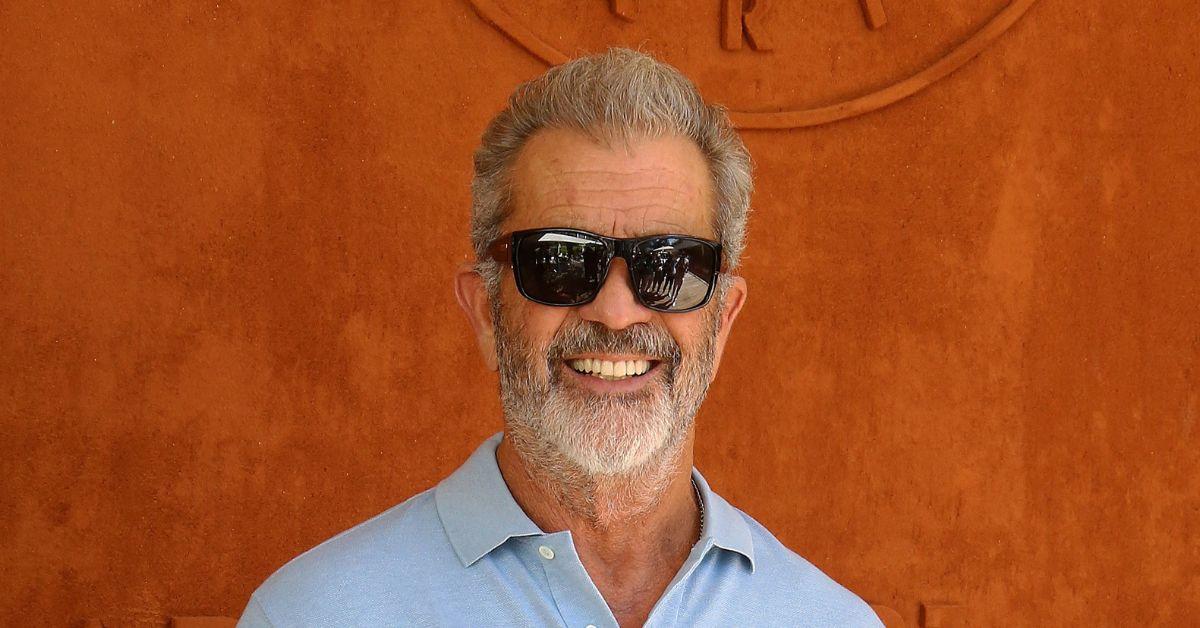
Lethal Weapon star Mel Gibson, 68, who burst onto the Hollywood scene in 1980 as a wild action hero in Mad Max, talked about his bipolar diagnosis in 2008, saying, “I had really good highs but some very low lows.”
Dwayne Johnson – Depression
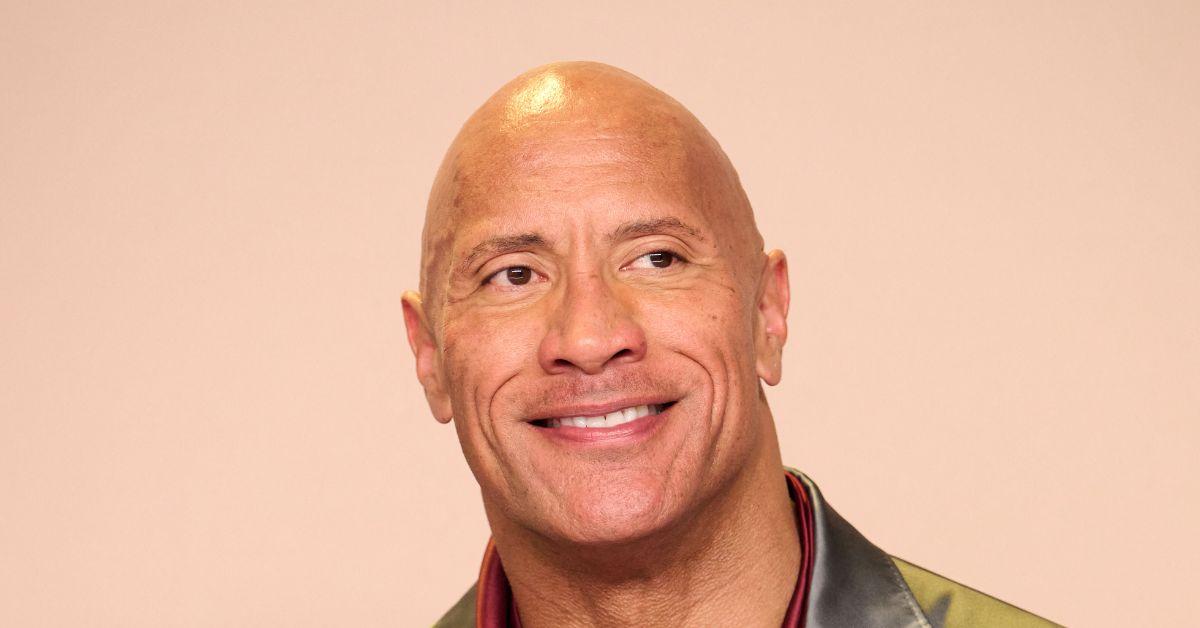
Dwayne "The Rock" Johnson, 51, said that so far he’s battled depression three times in his life.
The first time, he said, “I just didn’t know what it was. I didn’t know what mental health was, I didn’t know what depression was. I just knew I didn’t wanna be there.”
The depression struck him twice more: “I’ve worked hard over the years to gain the emotional tools to work through any mental pain that may come to test me ... If you’re going through your own version of mental wellness turning into mental hell-ness, the most important thing you can do is talk to somebody.”

